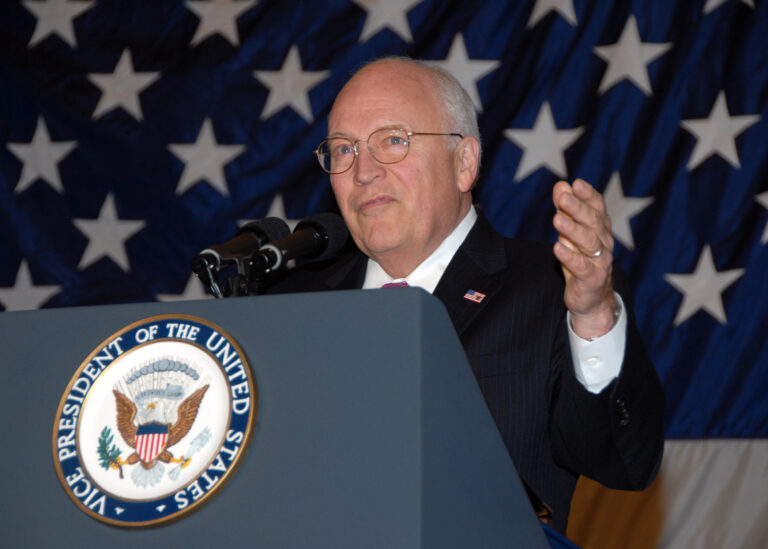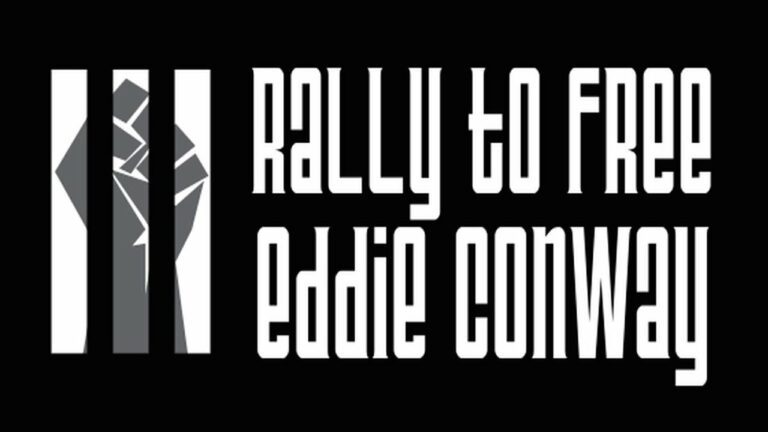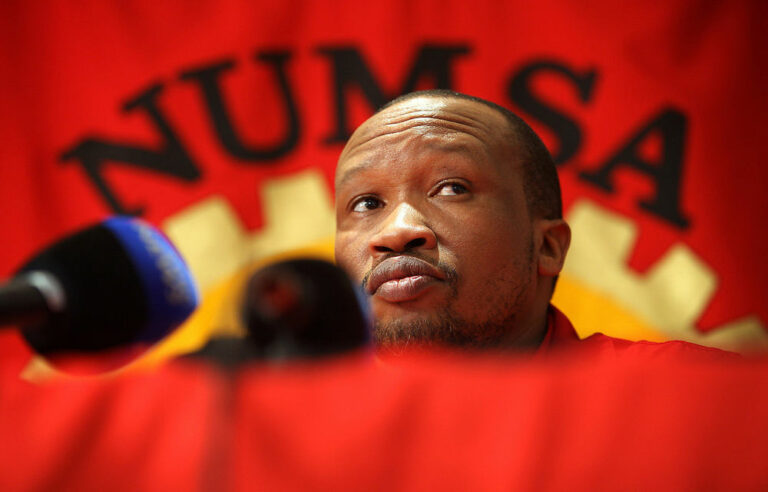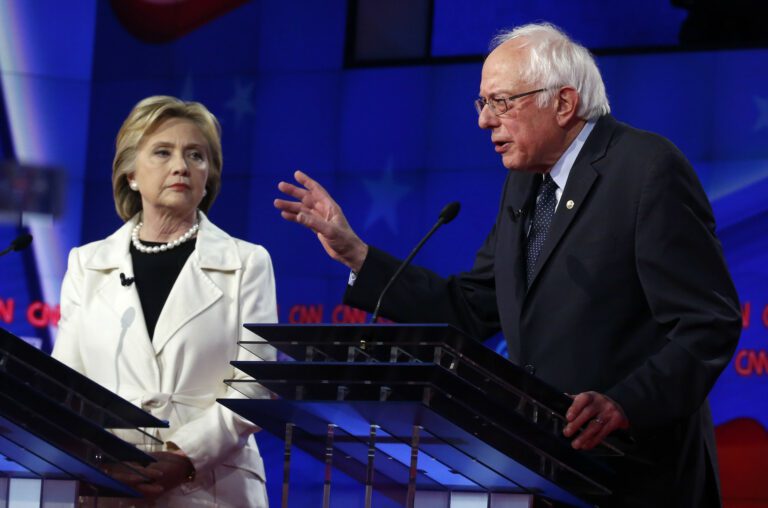On RAI with Paul Jay, David Swanson says that nonviolent campaigns have been more successful than campaigns of violence. This is an episode of Reality Asserts Itself, produced December 17, 2013, with Paul Jay.
STORY TRANSCRIPT
PAUL JAY, SENIOR EDITOR, TRNN: Welcome to The Real News Network. I’m Paul Jay in Baltimore. And welcome to Reality Asserts Itself.
We’re continuing our series of interviews about war and peace with David Swanson, who now joins us again in the studio.
David is an author of many books, including War Is a Lie, When the World Outlawed War, and War No More. You can learn all about David at the biography below and/or watch the other episodes where I did a longer intro.
Thanks for joining us.
DAVID SWANSON, ACTIVIST AND AUTHOR: Thanks for doing a short intro.
JAY: You’ve been critiqued in your previous work. One of the critiques is you don’t make a distinction between just and unjust war. To be more specific, you don’t make a distinction, some of the critics say, between oppressor and oppressed, for example, the right of the Vietnamese to wage war against American invaders, or the right of Palestinians, if necessary, to use force or war against being occupied, or so on and so on, that you say all war is bad and all resistance should be peaceful. I mean, first of all, are the critics right? Is that what you say?
SWANSON: I think that’s essentially what i say. I don’t distinguish between just rape and unjust rape. I don’t distinguish between good child abuse and bad child abuse.
JAY: That’s a little disingenuous. Someone defending themselves is different than someone–a woman about to be raped using a gun against a rapist is not the same thing as a rapist with a gun pointed at the woman, though.
SWANSON: I’m suggesting there are institutions and practices that we don’t justify in certain circumstances. We don’t distinguish humanitarian slavery from evil slavery. We are against slavery as an institution across the board. And I think war goes into that category.
And we like to think that there are justifiable wars and unjustifiable wars and defensive wars and aggressive wars. And, of course, when two big, armed nations or groups of nations go against each other and you look at that historically, as happened up through the pair of world wars, it is very easy to make an argument that it takes two to tango, that there was a drive for war from both sides. When a wealthy, powerful armed nation such as ours goes halfway around the globe and attacks and occupies an impoverished, unarmed nation, then clearly there is a distinction between the two sides.
And I’m not spending my time telling Iraqis and Afghans not to fight back, but I think that we have seen–and this has been well documented over the past century–that nonviolent campaigns against tyranny, against injustice in various nations and territories have been more successful and the successes have been longer-lasting than campaigns of violence.
You know, we look back to periods in the past, we look back and excuse Thomas Jefferson for owning slaves, because that’s what was done back then. Right? I would like people to get at least to the point of doing that with Franklin Roosevelt. That’s what was done back then. They did war. They didn’t have the next 75 years of knowledge of nonviolence, of nonviolence in Eastern Europe, in India, in the south of the United States, in Latin America, the accomplishments of nonviolence. They didn’t have an understanding.
JAY: But if you do go back to Second World War era–and we don’t know if we’re going to quite go back to that again, but you cannot imagine peaceful resistance to Nazis that come to your village in Poland and shoot all the women and children.
SWANSON: Well, we should recognize that we can’t go back to the 1940s, that it’s incredibly distant from us and very, very different in terms of empire and colonial practices of nations, as well as everything else, from music and clothing to Jim Crow to women’s roles in our society to, you know, all sorts of–I mean, the awareness of the natural environment in the 1940s compared to now. We have moved on. We are in a different place.
And it’s striking that whenever you say get rid of war in the United States, 99 percent of people, at least, go back 70 years or more to World War II. They don’t pick any other war. And here we are in a very world different world, where the United States has 1 million troops permanently in 177 nations and weapons in outer space, and nobody, nobody is the next Hitler. We’ve been misidentifying new Hitlers for decades, and none of them have been planning colonialism or a takeover of the United States. None of them. And nobody on the horizon will be.
JAY: No, the question I’m raising is more the other side of it, is that, you know, it’s the United States that’s been invading, and in some situation maybe people don’t have any other choice but to fight back through force.
SWANSON: Maybe. But I’m trying–as we discussed in the previous segment, I’m trying to take on the United States’ military-industrial complex, and to do so, I’m trying to suggest to Americans that they aren’t in danger. Not only are they not benefiting the Libyans and the Iraqis–go look at Libya and Iraq and see the damage–but they aren’t protecting themselves. There’s not a danger out there. Even if there were, you could cut 90 percent of the U.S. military budget, not have $1 trillion, have $100 billion like other wealthy nations, and just have a military here in the United States.
JAY: That just simply defends the country.
SWANSON: Right. If you want to just justify it as defense, cut the other 90 percent, take the bases out of 175 countries around the globe, take the ships out of the ocean, stop threatening–don’t be the leading supplier of arms to other countries. Eighty percent of military exports to dictatorships and democracies around the globe, not to mention driving the arms race with China, is U.S. militarism.
JAY: Well, let me go back to something I quoted from the book right at the very beginning. And you wrote this. This is a repetition of a quote in the introduction to the book. “The most significant cause of war, I believe and argue in the book, is bad information about past wars.” I want to argue with you about this, ’cause I think there’s a dirty secret, you know, a dark, dirty elephant in the room here that doesn’t get talked about very much, which is it isn’t just the war profiteers that have benefited from American military dominance. A lot of Americans have benefited from this, you know, why there was such high wages among workers when in the rest of the world there were relatively low wages. I don’t mean all workers, but the privileged workers, the autoworkers, people in transport, communications, certainly people working in the industrial-military complex.
You know, there was a while there–and this may be part of the New Deal in a sense–where America shares some of the plunder of the world with American workers, and certainly other stratums of the population. You know, there’s a reason why the United States is the biggest consumer of consumer goods on the world by stratospheric amounts. And it’s not just the size of its population. This dominant military position has enriched many Americans–and it asserts America commercial interest all over the world. And without doubt the American elite far, far, far benefits from this more than the American people do, and ordinary Americans give up their sons and daughters and die in wars mostly to benefit the elite, but not just. A lot of non-elite Americans, at least in the past–I think it’s starting to change now with, you know, you could say, a real attack on what were privileged workers, like the autoworkers. But part of this cultural belief in the necessity of war and America as a policeman, it was okay to accept this rationale, ’cause I’m doing alright, Jack.
SWANSON: Well, you do hear that argument to this day. Wars that are marketed on television as defensive or philanthropic are argued for on the street. You’ll hear it all the time–we have to have these wars for our oil, we have to have these wars for our lifestyle.
JAY: In fact, sometimes people are more honest about it on the street.
SWANSON: Oh, absolutely. They are absolutely honest. And there are politicians who are probably thinking the same thought and not saying it. But is it necessarily a better lifestyle to have more consumer goods and more environmental destruction? Is that always beneficial to you and your family and the future of your country and the planet? I mean, getting rid of war is survival as well as utopianism at this point. The proliferation of weapons, the destruction of the environment, the prioritization of military spending over spending on environmental protection is destroying us.
And you’re absolutely right that the United States consumes far more than its share of many valuable resources, including environmentally destructive resources, and it manages to do so in part through war and the threat of war, as well as other economic injustices. But if we’re going to get at public opinion that says no, I’m willing to take a different lifestyle, I’m willing to hear from those in Britain who say that Britain itself benefited when its empire was shut down, I’m willing to pursue a lifestyle that is sustainable environmentally and peaceful and not send people off to kill and die in wars and not create the blowback, and I’m going to understand that the wars are endangering us rather than making us more safe, so there’s no plus side I’m giving up, then you’re going to have to educate people about what wars really are.
JAY: And, in fact, I think things have gotten to a point now where the cost of this empire, the elites no longer want to share much of the plunder with most of the American people, which is why they’re attacking even what were the most privileged sections of the American working class, chopping starting wages in General Motors from $26 to $14 an hour. It’s happening throughout industry. In fact, they’re probably going to have a permanent unemployment rate of 7 to 9 to 10 percent officially, maybe higher. So things are starting to change in this. And now maybe you will see that cultural change you’ve been talking about.
SWANSON: Well, the reason that the United States, wealthier than any other country, is less well-off in terms of our lifestyles, in terms of education and income and security and retirement and vacation and life expectancy and on and on, is because of two things we have that other countries don’t have: we have multibillionaires, and we have a military the likes of which the globe has never seen before, could never survive more than one of, and probably won’t survive this one if we don’t shut it down soon.
So you can get people to want to take the money back from the billionaires. You’re up against the lies that the billionaires benefit us–you know, I’m going to be the next multibillionaire, and it’s that greed that drives the economy and benefits us all, that massive lie.
Or you can get the money out of the war machine. And there you’re up against–in mobilizing massive public pressure for that, you’re up against the lies about what the wars are, what the wars look like, what they do. And because the wars are distant from our shores and because we’re told such limit–I mean, there’s a reason why U.S. media doesn’t show the blown up children. There’s a reason why they increasingly market the wars as humanitarian as opposed to just defensive, because there’s a section of the U.S. public that wouldn’t stand for this mass slaughter of innocents abroad if they knew it was happening.
JAY: Well, you can see it with soldiers who go with the own narrative and mythology, and then they see the reality and are now killing themselves in record numbers.
SWANSON: Twenty-two a day according to the Veterans Administration. And that does not count high-speed single-car crashes, drug overdoses from the drugs that they try to treat the moral regret and depression and suicidal tendencies with. I mean, it’s an incredible–more of these soldiers die from suicide than from any other cause. So we continue the wars in the name of the troops so that the troops will not have been killing themselves in vain. If that’s not madness, tell me what is.
JAY: So why isn’t there a bigger antiwar movement in the United States? As you mentioned in the previous segment, just in the leadup to the Iraq War there was the biggest global protest in the history of humanity against the Iraq War. The Iraq, you know, War wound down, the Afghan War is on, the drone strikes are going on, but that connection, where masses of people found this personal opposition to–this war affects me and I–. You know, one of the things that marked those demonstrations in–2003, right?–
SWANSON: Yeah.
JAY: –was the numbers of people that had never been to a protest before. That’s what kept being talked about. So what happened to all those people? All of a sudden it doesn’t feel personal to them anymore.
SWANSON: Well, you know, I came here from Washington, D.C., where 30 people were sitting in Senator Chuck Schumer’s office refusing to leave until he made a statement against drone murders. And I got here and I talked to some of the RealNews.com staff, they said, have you seen this AP story? And it was my email about that that I had sent out to a media list and the AP had turned into a report. You won’t see that on CNN. You won’t see it on MSNBC. You won’t hear that there was an antiwar action that day on Capitol Hill, small though it was.
But there are such actions all over the country every single day, and they’re not in the media. Now, they are not anywhere close to where they should be or where they were in 2003. And a lot of that is partisan, you know, not wanting to take on a Democratic president, the present having been given absolute war powers and war being associated with the president. But it’s a movement that can grow.
And we saw in that opposition to the missile strikes into Syria, where it was made a big public question–unlike the drone strikes, it was made a question to Congress and to the public, and we said no, and it was effective. Now, the CIA immediately started sending guns into that war, which the public was more opposed to than the missiles, but it wasn’t made a big debate and we didn’t have any say, and nothing’s being done about it. So we have to get to the point where we have the strength to create a question when the world’s governments, the parliament and the Congress, and the corporate media don’t make it a question. We haven’t gotten that strength yet.
JAY: So how do you/will you?
SWANSON: Well, one way I think we’re going to have to get to it is by bringing in different constituencies of activism. So big environmentalist groups that up till now are very, very hesitant to take on our biggest consumer of petroleum, our biggest creator of Superfund sites, our biggest demolisher of the natural environment, have got to get over that hurdle, that patriotism, that flag-waving, that glorification of war, and be willing to take on the Pentagon. The civil rights groups, the human rights groups that take on the symptoms of war, the torture, the detentions, that don’t recognize that they follow the same graph as military spending, have got to join with us in going to the root of the problem. The immigrants rights groups that should be called refugee rights groups that need to look at the source of what drives migration need to join with that movement and face the potential–.
JAY: So you’ve–obviously know people in all these movements. You’re having these arguments and debates.
SWANSON: We are.
JAY: And they’re so far saying, no, it will distract from our issue; we can’t go up against patriotism or we’ll lose the issue we’re about. I mean, what are they saying to you?
SWANSON: Little, little bits of progress, big environmental groups taking on the U.S. military with its destruction on Jeju Island, South Korea, with a big base construction, its proposal to take Pagan Island in the Marianas and turn it into the next Vieques in Puerto Rico. There’s–bomb it into nothingness with weapons testing. Environmental groups willing to take on the military in these cases, and to listen to the need to take it on further.
Amnesty International is feeling a lot of heat right now over having said these drone murders are bad and these drone murders are good, we can’t necessarily tell which is which, but we’re not going to recognize the existence of the UN Charter, because that would make us biased. That doesn’t look good as a human rights group dealing with issues of legality of war to refuse to acknowledge the illegality of war.
And so step-by-step we’re going to have to build this broader anti military industrial complex coalition.
JAY: Alright. Thanks for joining us, David.
SWANSON: My pleasure.
JAY: And thank you for joining us on Reality Asserts Itself on The Real News Network.







The question of just or unjust war is not relevant if those who make the choice do so from a basis of power. Having power means more than simply controlling the means of war, the weapons and the ability to compel others to use them, it also means control of information. As the point is made in “Manufacturing Consent”, the use of propaganda is necessary for the few to control the many.
But not only the control of information, the education of the young, the history texts used in the schools, and the control of the popular media empower the few to make war by persuasion.
But even if a determination of the justice of a war could be made under conditions of a free flow of information, the question must still be decided: is war the best response to the provocation?
In my view, the termination of war-making cannot come from such determinations. It can come only from a recognition by those who hold power that war is no longer – if it once was – a practical way to make gains. I think it first must be universally recognized that the costs of war that arise from its practice immediately and that issue from it long afterwards exceed the benefits even to the powerful.
I think this is now true, but I could not prove it. Some among the powerful may believe it is still possible for them to benefit from making wars. They may believe wars can be limited, and the consequences would not hurt them while they would still benefit.
We, the human race, are so far from being able, without the agreement of the powerful among us, to eliminate wars, that to try to do so on the basis of their injustice is ludicrous. That is the reason why the world is as it is. Power rules!